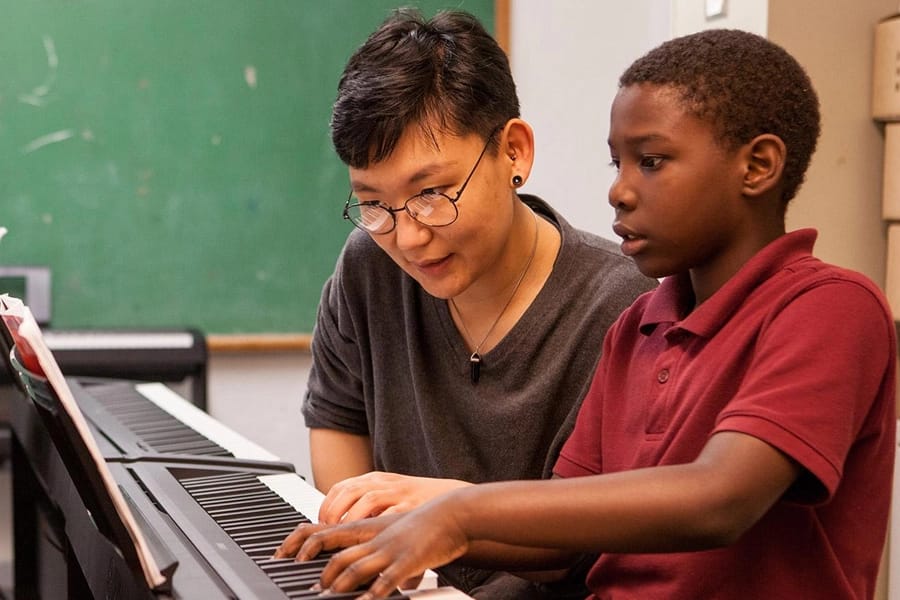
San Francisco Conservatory of Music and several interfaith and community partners have announced a new program called ‘Bridge to Arts and Music‘ (or BAM) that will build on the music program started at the Third Baptist Church, and made possible by a large grant from the Koret Foundation. 32 children will be given private and classroom after-school lessons in voice and piano.
You can read more about the announcement at the SF Conservatory of Music website.
“The opportunity to put music back into a community, and to inspire children to engage music is why we exist,” SFCM President David Stull says. “The church had the space, the Conservatory had the resources, the ability to reach out to the grantor organizations that made all this possible.” It was very much a collaborative effort, as many of the principals expressed at their launch announcement at the end of last week, but it was made possible by the contribution from the Koret Foundation. “In 2017, the foundation established a new multi-year arts and culture initiative,” Kyle Marinshaw of Koret explained, “which really aimed to deepen our commitment to supporting innovative and dynamic cultural organizations. A core tenet of that was expanding access to arts education and creative expression for underrepresented youth.” Reverend Amos Brown of Third Baptist says now it’s up to the teachers and children: “To show what can happen incrementally to take them higher and higher to great achievement, and the sharing of their gifts for the blessings and benefit of others.” Congregation Emanu-El is also a partner in the interfaith project. Michael Pappas, Executive Director of the San Francisco Interfaith Council says, “This program shows the power of collaboration between organizations, and the dedication to creating access points for underrepresented youth. But this is an opportunity for all children, regardless of their religious affiliation, to let music into their lives. They’re never going to forget this, it’s something that can not be taken away from them. And there’s no barrier for entry for any child. That’s justice.”







